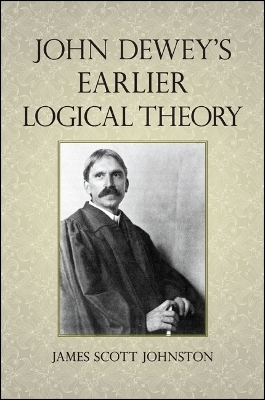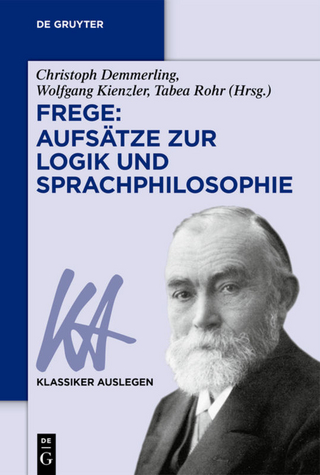
John Dewey's Earlier Logical Theory
State University of New York Press (Verlag)
978-1-4384-5344-6 (ISBN)
When John Dewey's logical theory is discussed, the focus is invariably on his 1938 book Logic: The Theory of Inquiry. His earlier logical works are seldom referenced except in relation to that later work. As a result, Dewey's earlier logical theory is cut off from his later work, and this later work receives a curiously ahistorical gloss. Examining the earlier works from Studies in Logical Theory to Essays in Experimental Logic, James Scott Johnston provides an unparalleled account of the development of Dewey's thinking in logic, examining various themes and issues Dewey felt relevant to a systematic logical theory. These include the context in which logical theory operates, the ingredients of logical inquiry, the distinctiveness of an instrumentalist logical theory, and the benefit of logical theory to practical concerns—particularly ethics and education. Along the way, and complicating the standard picture of Dewey's logic being indebted to Charles S. Peirce, William James, and Charles Darwin, Johnston argues that Hegel is ultimately a more important influence.
James Scott Johnston is Associate Professor of Education and Philosophy at Memorial University in Canada. He is the author of Deweyan Inquiry: From Education Theory to Practice and Inquiry and Education: John Dewey and the Quest for Democracy, both published by SUNY Press.
Introduction
Rapid History of Dewey’s Logic
Rapid Review of Dewey’s Earlier Logic
Review of interpretations of Dewey’s Earlier Logic
Chapter Summaries
1. Dewey’s Logical Education: From Early Essays to Essays in Experimental Logic
Introduction
Part One: Dewey’s Motives for Logical Theory
Part Two: Dewey’s Logical Education 1882–1902
Part Three: Dewey’s Logical Education 1903–1915
2. Dewey’s Logical Education: The Influence of Hegel
Part One: The Hegel Scholarship on Dewey
Part Two: The Question Concerning Hegel
Part Three: Dewey on Hegel
Part Four: What Dewey Takes from Hegel
3. Dewey’s Earliest Views on Logic
“Is Logic a Dualistic Science?” (1890)
“The Logic of Verification” (1890)
“The Present Position of Logical Theory” (1891)
“Some Stages of Logical Thought” (1900)
Conclusion
4. Studies in Logical Theory (1903)
The Preface
The Relationship of Thought and its Subject-Matter
The Antecedents and Stimuli of Thinking
Data and Meanings
The Objects of Thought
Conclusion
5. Practical Logics
Lectures on “The Logic of Ethics” (1900)
“Logical Conditions of a Scientific Treatment of Morality” (1903)
How We Think (1910)
Conclusion
6. Essays in Experimental Logic (1916)
The Introduction
Miscellaneous Essays
“The Logic of Judgments of Practice”
Conclusion
7. From Essays in Experimental Logic (1916) to Logic: The Theory of Inquiry (1938)
Introduction
The Existential Matrices of Inquiry
Scientific and Social Inquiry
Propositions and Inferences in Inquiry
Notes
Bibliography
Index
| Erscheint lt. Verlag | 2.7.2015 |
|---|---|
| Zusatzinfo | Total Illustrations: 0 |
| Verlagsort | Albany, NY |
| Sprache | englisch |
| Maße | 152 x 229 mm |
| Gewicht | 227 g |
| Themenwelt | Geisteswissenschaften ► Philosophie ► Logik |
| Geisteswissenschaften ► Philosophie ► Philosophie der Neuzeit | |
| ISBN-10 | 1-4384-5344-2 / 1438453442 |
| ISBN-13 | 978-1-4384-5344-6 / 9781438453446 |
| Zustand | Neuware |
| Informationen gemäß Produktsicherheitsverordnung (GPSR) | |
| Haben Sie eine Frage zum Produkt? |
aus dem Bereich


